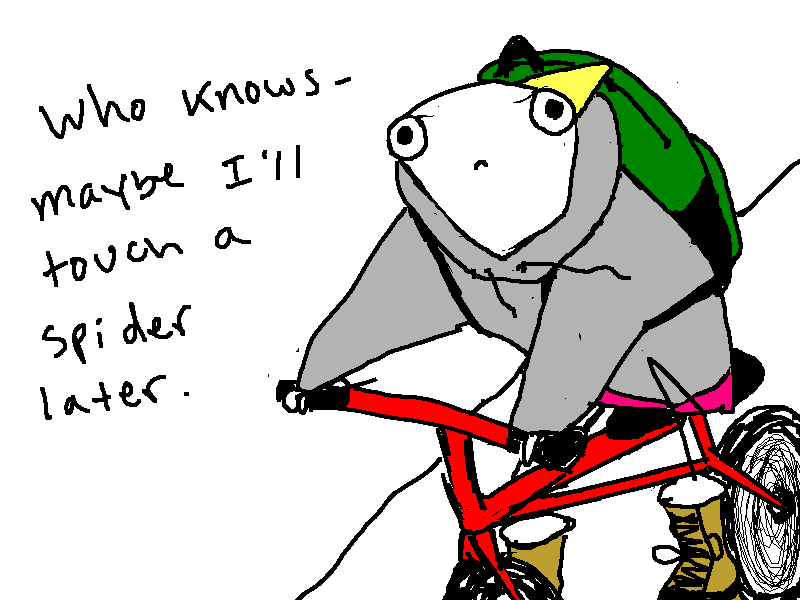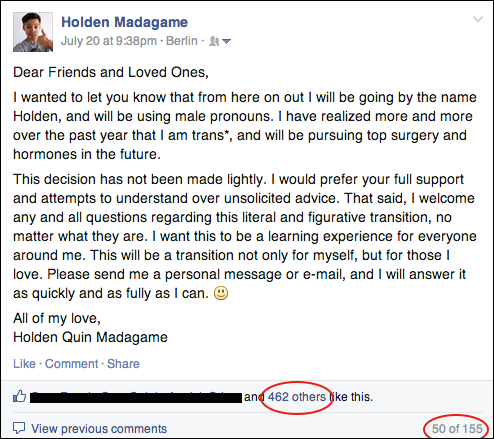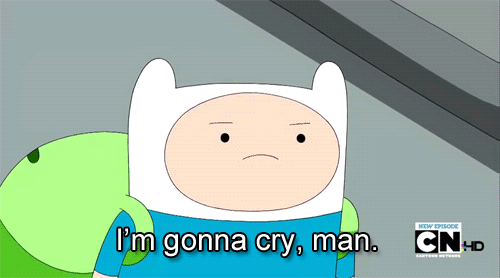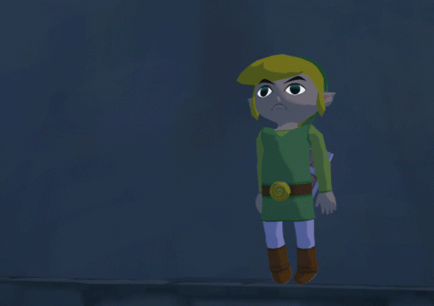A little while ago I came out very publicly as trans* to Facebook, Twitter, my website, and to my extended family. From what I’ve heard, this isn’t normal, but from the moment I knew that I wanted to come out, this is exactly how I wanted it to happen. Being trans* can mean a million things to a million people, but for me, this means that I want top surgery, testosterone, and to go by a different name/pronouns.
DISCLAIMER: I don’t want to cover everything about being trans* in one post, because there’s enough time for that to happen little by little, but I do want to tell you how I came to be at this point in my life, dreaming of T, binding my chest, and using a different name.
It all began on a summery day in the summer of 2013. I was preparing for the role of Cherubino in ‘Le nozze di Figaro,’ which you might know as ‘The Marriage of Figaro,’ with Arbor Opera Theater. It was my first paying opera gig, and with my absolutely dream role of Cherubino, the horniest, cutest boy in all of opera history. He has a way of making the audience love him through only a few arias, a few ensembles, and making out with people onstage.
So basically, a dream for a 22-year-old queer woman to play.
 Throughout staging and costuming and eventually performing the opera, I fell more and more in love with Cherubino, and wanted to be Cherubino 24/7. It felt absolutely natural to run around on stage, being allowed to be as boyish and masculine as I wanted, and being convincingly perceived as such to an audience. Throughout various twists and turns which are common to opera, there are also moments where Cherubino must dress up as a woman to further the plot. To me, this even deepened my bond to this character, because he knew what it felt like to dress up in drag as well…and which was drag for me: dressing as a boy, or a girl? I wasn’t sure.
Throughout staging and costuming and eventually performing the opera, I fell more and more in love with Cherubino, and wanted to be Cherubino 24/7. It felt absolutely natural to run around on stage, being allowed to be as boyish and masculine as I wanted, and being convincingly perceived as such to an audience. Throughout various twists and turns which are common to opera, there are also moments where Cherubino must dress up as a woman to further the plot. To me, this even deepened my bond to this character, because he knew what it felt like to dress up in drag as well…and which was drag for me: dressing as a boy, or a girl? I wasn’t sure.
It was after one comment from a friend that a shift in my brain started to turn: “My grandpa really thought you were a boy! I had to really convince him that you weren’t after the show!” It made me ecstatically happy to hear that I had convinced someone that I was a real boy onstage. Terrifyingly ecstatic. It was at this moment that I became undeniably confused about my gender. Sure, I had had moments throughout my life where I had wondered whether I was trans*, but I had always been able to push the thoughts away. I always thought, “If I was trans, I would know it. There would be no doubt.” I didn’t learn until much later that it’s much more common to doubt than I thought.
While I was dating a friend of mine, I told her this, and she told me she had known. We had been friends for years, and she could see how uncomfortable I was in my own body, even if other people couldn’t. She encouraged me to get a real binder (not my very chic victorian era binder that had gotten me through the opera). After it arrived, I never wanted to take it off. I felt like a ninja, a warrior, and a god all in one.
It was amongst all of this change that I moved to Berlin. New setting, new friends, new life. The girl I was dating said I should play a game once I got there and try to pass as male. Honestly, it probably would have been fun, but I was convinced it would never work, because I was convinced I would never pass in front of anyone. She disagreed.
Maybe she was right, maybe I was right. I don’t know.
I bound my breasts regularly after arriving in Berlin, moved apartments roughly 5 times, dated a few people, broke up with a few people, etc. Life moved normally, and I kept pushing along, but with this undercurrent of increasing discomfort in my own skin. I dated one person who, after having a casual discussion, was just not OK with the idea of me wanting top surgery, even in a hypothetical way. Although it hurt, it made me realize how important the idea–however hypothetical–it was to me. It was something real and tangible that I wanted, if only I allowed myself to have it.
Fast forward a few months. After dating a wonderful woman and expressing all of my doubts and fears and anger to her, I felt more and more solidified in my decision to have top surgery, and maybe hormones. The only thing standing in my way of hormones was opera, and vice versa. In my mind, they were two completely incompatible things that I would need two separate lives for. It was a complete crossroads, and was not a decision that anyone could make for me.
I became depressed, and one night I wore my binder for roughly eighteen hours. Anyone who binds will know that this is six hours more than the maximum recommended amount, and thus just too long to be wearing something that constricts your chest, especially while walking in the heat all day and watching the World Cup. I starting feeling hot, despite the cold weather outside. I felt faint, and couldn’t breathe. I thought I was going to fall down in the middle of Weserstraße. After we got home, I ripped off my binder, lied in bed, and cried silently. The thing that had protected me and made me feel safe for the past eight months had betrayed me.
For a week I didn’t even look at my binder. It was dead to me. I wanted nothing to do with it. But like a domesticated animal, I couldn’t live without it at this point. Something had to change.
After 2 weeks of barely leaving my house, and with growing guilt about the emotional pressure I was putting on my girlfriend, another switch flipped. There was nothing in particular that caused this change, except perhaps that I had gotten to the bottom, and my brain just said, “Nope, gotta go up now.” I had simply been riding my bike somewhere, and was suddenly in a Hyperbole and a Half comic. Every person that could have gotten in my way was in my way, and I thought, “Fuck it. None of these people matter. I need to make them move if they’re not going to move.”

I came home, and started furiously writing e-mails and Facebook messages coming out to all of the people most important to me. The most important was my mother, who was going to be visiting my sister in California. It was perfect timing. My sister could answer my mom’s questions, and my mom would have support if she needed. Although I had very little fear, my mom turned out to be even more supportive than I thought. She immediately wanted to know what my plans were, what she could do, if she could come to the surgery with me, what I wanted to be called and what pronouns to use, etc. I’m very lucky. Most people don’t have this reaction from their mother.
After coming out to my mother and many of my friends, I wrote a letter to my extended family, which my mother sent. I’ve had mostly very supportive responses (also a rarity).
While coming out to friends and family, I made a list of priorities that looked something like this:
- Come out to important friends
- Come out to extended family
- Find a therapist (possibly via Skype?)
- Research surgeons for top surgery
- Come out on Facebook
It was very straight-forward, and Facebook was actually lower on the list than you would think, but obviously still in the top five. I was both terrified and biting at the bit to come out to Facebook, which basically meant coming out to 1,200 people, plus then changing the rest of my social media to match.
Regardless of my feelings though, I knew that I was going to come out online to the entire world. There was no other option. I even asked reddit how to change all my social media effectively, and one person responded with this:
“The only experience I have is with facebook. I’m out, but there are still a handful of people I’m not out to for various reasons who I have on Facebook. I just made a new one while keeping the old one active, added all the people who know I’m trans. Ended up getting some friend requests from people who I thought didn’t know but apparently did, which really assisted coming out because I’m terribly paranoid that people won’t be cool with it (as it turns out so far no one has any issue with it, which is nice and surprising).
I think that approach is a lot easier than changing things on an existing account, unless you want to go all out with the coming out stuff, I wanted to take it slow.”
Somehow, I didn’t see taking is slow as an option. I had only considered going all out, or not doing it at all. Part of this was perhaps because I have professional contacts on Twitter and Gmail, and because I already had paid for a personal domain name for the next three years. It gave me a peek into the lives of other trans* people though, who either feel scared, or have to hide by necessity. I have it easy, and I know it. I was not scared for my well-being, and actually had the privilege to open up conversations with people, answer questions, and help educate my friends and family.
So then I did it. I came out to Facebook (which I call “The World” not unironically). The response was overwhelmingly supportive. Roughly a third of my Facebook friends liked the status, many commented, and I got waves of personal messages and e-mails as well.

“So what now?” That’s a good question. I’m planning on finding an English speaking therapist, acquire a letter for testosterone and top surgery, book an appointment for the actual surgery, and most importantly start an online fundraising campaign for the costs. When that campaign goes live, I would appreciate any amount of financial support that you can give and/or social media exposure to extend the reach of the campaign. I’m going to have a recital to benefit my surgery as well.
A lot of these things require waiting, and a lot of patience though. In the mean time, here’s my short list:
- Write a lot
- Start a trans* related podcast with a friend
- Read a lot
- Prepare my body for surgery
I’m going to try to make the world a better place. I want to show other trans* people that it’s OK to publicly come out, and that they don’t have to hide anymore. I also want to educate my friends, family, and lots and lots of strangers about trans* issues. I want to show why visibility is important.









 Gender is not binary. This is something I know now, and something I think everyone needs to have internalized. By allowing only cis females at the university, they are effectively perpetuating a lot of unhealthy ideas about gender, and thus the idea of the gender binary. They are also getting the idea to keep women healthy with the help of
Gender is not binary. This is something I know now, and something I think everyone needs to have internalized. By allowing only cis females at the university, they are effectively perpetuating a lot of unhealthy ideas about gender, and thus the idea of the gender binary. They are also getting the idea to keep women healthy with the help of 





